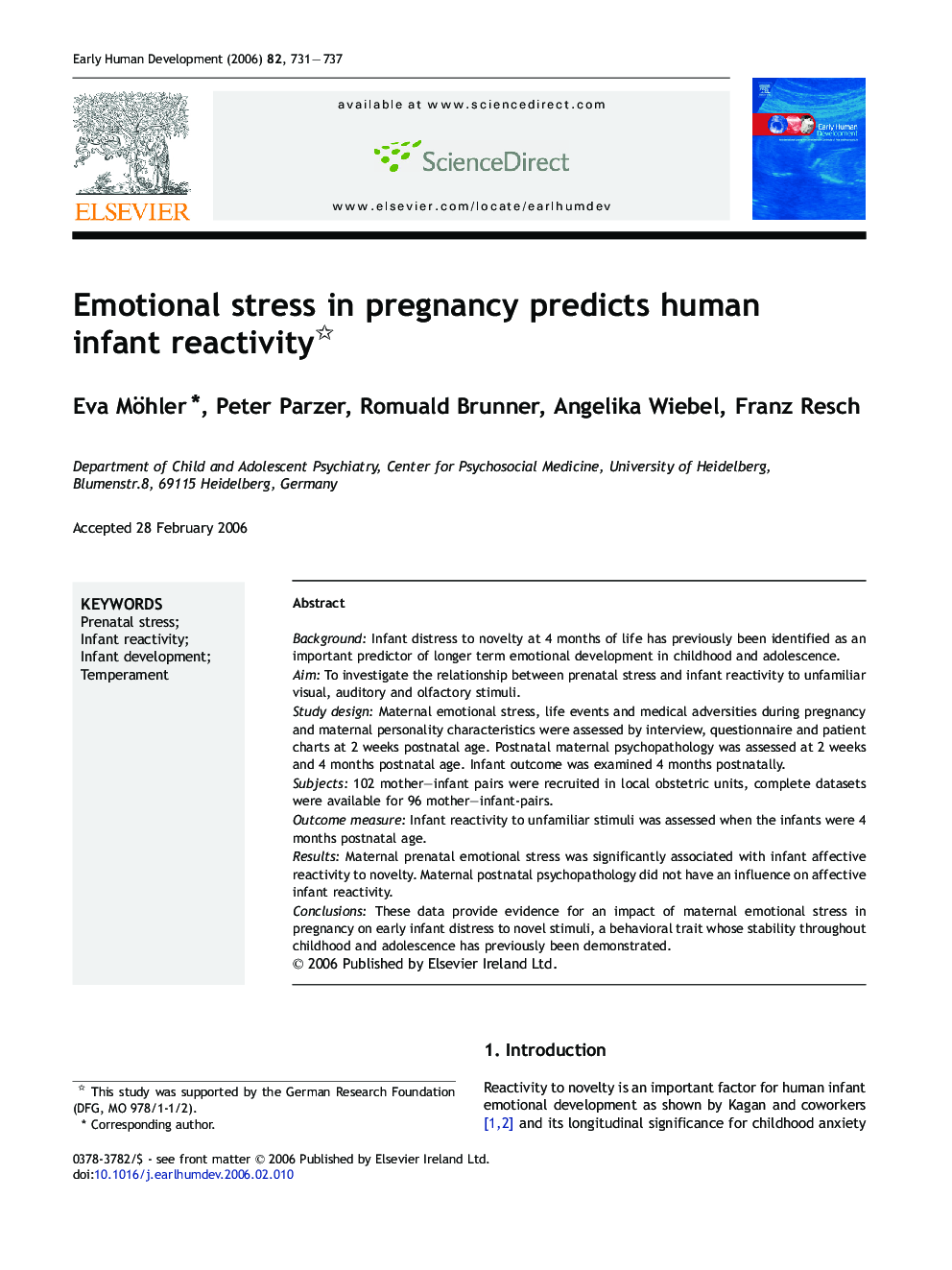| Article ID | Journal | Published Year | Pages | File Type |
|---|---|---|---|---|
| 3918092 | Early Human Development | 2006 | 7 Pages |
BackgroundInfant distress to novelty at 4 months of life has previously been identified as an important predictor of longer term emotional development in childhood and adolescence.AimTo investigate the relationship between prenatal stress and infant reactivity to unfamiliar visual, auditory and olfactory stimuli.Study designMaternal emotional stress, life events and medical adversities during pregnancy and maternal personality characteristics were assessed by interview, questionnaire and patient charts at 2 weeks postnatal age. Postnatal maternal psychopathology was assessed at 2 weeks and 4 months postnatal age. Infant outcome was examined 4 months postnatally.Subjects102 mother–infant pairs were recruited in local obstetric units, complete datasets were available for 96 mother–infant-pairs.Outcome measureInfant reactivity to unfamiliar stimuli was assessed when the infants were 4 months postnatal age.ResultsMaternal prenatal emotional stress was significantly associated with infant affective reactivity to novelty. Maternal postnatal psychopathology did not have an influence on affective infant reactivity.ConclusionsThese data provide evidence for an impact of maternal emotional stress in pregnancy on early infant distress to novel stimuli, a behavioral trait whose stability throughout childhood and adolescence has previously been demonstrated.
